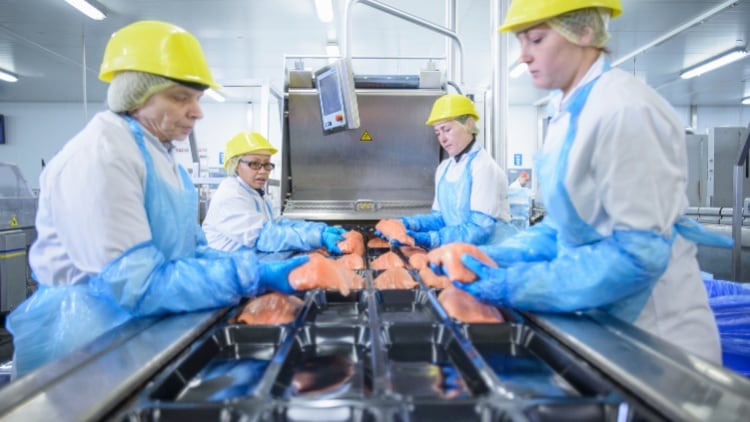The Office for National Statistics (ONS) published its employee jobs by industry data for the UK on 12 September 2023, with the figures for June 2023 included.
As of June this year, 394,000 people were employed within the 'manufacturing of food products' sector in the UK. This compares to 398,000 in June 2022, a decrease of 4,000 jobs. There was a small increase compared to March 2023, the most recent data point, when the sector employed 393,000 members of staff.
In terms of self-employed workers, the food manufacturing figure for June 2023 sat at 6,000 people, down from 10,000 in June 2022.
The manufacture of drinks is separated from food by the ONS and included alongside tobacco, with beverage and tobacco production employing 48,000 people as of June this year. This represented a 3,000-employee decrease year-on-year.
Meanwhile, the latest data showed that crop and animal production employed 169,000 people in the three months up to June 2023, down from 178,000 a year prior.
Both public and private sector employees are calculated as part of the data.
Food and drink facing ‘significant labour shortages’
In response, a spokesperson for the Food and Drink Federation (FDF) said that the figures serve as another reminder of the “significant labour shortages” facing the food and drink manufacturing sector.
They continued: “Our research last month found that this has cost businesses £1.4bn over the last year, with companies being forced to leave vacancies unfilled and reduce production – all of which contributes to rising wage bills, higher prices and stifles growth, which is vital for a strong economy.”
The FDF believes that these shortages are preventing businesses within the sector from enhancing and expanding their operations, costing both the food and drink industry and the wider economy in the process.
“Investment is essential if we are to build a sustainable and resilient food supply chain which supports the economy and feeds the nation,” the spokesperson said.
“We need Government to work with industry to implement all ten recommendations in the Independent Review into Labour Shortages and to deliver the Prime Minister’s commitment to grow the economy. ”
In other news, Food Manufacture investigates the rising popularity of frozen food.





